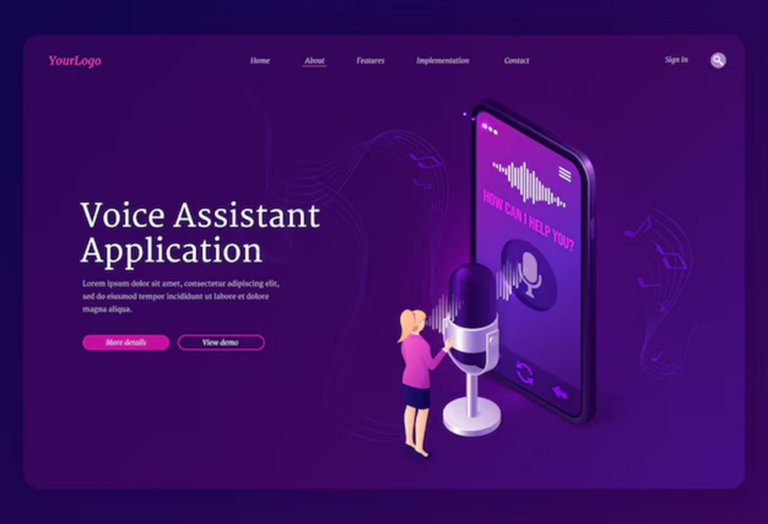AI Travel Planning Assistants
AI travel planning assistants are revolutionizing trip planning, offering smart recommendations, itinerary organization, and real-time updates. Whether booking flights, finding hotels, or discovering attractions, AI-powered tools make travel more efficient and personalized. This guide explores the best AI travel assistants and how they enhance the experience.
Introduction
Travel planning can be an exciting yet overwhelming experience. There are many factors to consider, from booking flights and hotels to creating itineraries and managing budgets. Artificial intelligence has transformed how people plan their trips by simplifying the process and providing personalized recommendations. AI-powered travel assistants help users find the best deals, organize schedules, and ensure a hassle-free journey.
With the ability to analyze vast amounts of data, AI travel assistants provide insights into destinations, suggest optimal travel times, and offer real-time updates on weather, traffic, and flight changes. These tools cater to solo travellers and families, making vacations, business trips, and weekend getaways more enjoyable. This article explores how AI travel assistants work, their key benefits, and the best AI-powered tools for planning stress-free trips.
How AI Travel Assistants Improve Trip Planning

AI travel assistants use machine learning, natural language processing, and predictive analytics to assist users in making informed travel decisions. These tools are designed to streamline every stage of travel planning, from initial research to booking and on-the-go assistance.
One of the primary advantages of AI in travel planning is its ability to provide personalized recommendations. Unlike traditional search engines, AI-powered assistants analyze user preferences, past trips, and budget constraints to suggest the best destinations, accommodations, and activities. This makes trip planning more efficient and tailored to individual needs.
AI also improves efficiency by automating flight searches, hotel comparisons, and itinerary organization. Instead of spending hours browsing multiple websites, users can rely on AI assistants to compile the best options based on real-time pricing and availability.
Another key benefit of AI travel assistants is their ability to provide real-time updates and alerts. Whether it’s a flight delay, a sudden weather change, or a last-minute hotel cancellation, AI tools ensure that travellers are informed and prepared. Many AI-powered travel apps integrate with navigation systems to offer real-time traffic data and alternative routes.
AI assistants enhance the travel experience by providing smart packing lists, local recommendations, language translation, and expense tracking. These features help travellers stay organized and make the most of their trips without stress.
AI-Powered Travel Planning Assistants

Hopper – AI for Predicting the Best Travel Deals
Hopper is a powerful AI travel assistant that predicts flight and hotel price trends. Analyzing historical pricing data advises users on the best times to book flights and accommodations to get the lowest rates. Hopper also provides notifications when prices drop, ensuring that travellers secure the best deals.
This AI-powered tool is particularly beneficial for budget-conscious travellers looking to save money on airfare and lodging. It also allows users to freeze prices for a limited time, allowing them to make decisions without worrying about sudden price increases.
Google Travel – AI-Powered Trip Planner
Google Travel is an all-in-one AI-powered trip-planning tool that helps users organize their travel itineraries. It automatically compiles reservations for flights, hotels, and rental cars from Gmail, providing a centralized location for all travel plans.
Google Travel also offers destination recommendations based on search history and user preferences. It suggests top attractions, restaurants, and activities in each location, making it easier to explore new places. The platform integrates with Google Maps to provide navigation assistance and estimated travel times between destinations.
Skyscanner – AI Flight and Hotel Search Engine
Skyscanner is an AI-powered search engine that helps users find the best deals on flights, hotels, and car rentals. Using AI algorithms, it compares prices across multiple travel providers and highlights the most affordable and convenient options.
One of Skyscanner’s standout features is its flexible search function, allowing users to explore destinations based on their budget and travel dates. It also provides real-time fare alerts and alternative route suggestions, helping travellers save money and time.
TripIt – AI Travel Itinerary Organizer
TripIt is an AI-driven travel organizer that automatically compiles travel plans into a single itinerary. Users forward their confirmation emails for flights, hotels, and activities, and TripIt creates a structured travel schedule.
This tool helps travellers stay organized by providing flight details, check-in times, and weather updates. It also offers real-time alerts for gate changes, delays, and cancellations, ensuring that travellers are always informed about their trip status.
Kayak – AI Travel Booking Assistant
Kayak is a comprehensive AI travel assistant that helps users find and book flights, hotels, and rental cars. It uses predictive analytics to determine the best booking times and suggests alternative travel options based on user preferences.
Kayak also integrates with virtual assistants like Google Assistant and Amazon Alexa, allowing users to search for travel options using voice commands. The AI-driven platform simplifies travel booking by providing a user-friendly experience with tailored recommendations.
Expedia – AI-Powered Travel Planning
Expedia’s AI-powered travel platform provides smart flight, hotel, and vacation package recommendations. It uses machine learning to personalize search results based on past bookings and browsing behaviour.
The Expedia chatbot offers real-time customer support, helping users with booking modifications, refund requests, and travel inquiries. It also provides AI-generated travel guides with curated recommendations for top destinations.
How AI Travel Assistants Improve On-the-Go Experiences

AI travel assistants don’t just help with planning; they also enhance experiences during the trip. AI-powered tools provide real-time updates on flight status, local events, and weather conditions. These features help travellers adjust their schedules and avoid unexpected disruptions.
Language barriers are often challenging for international travellers, but AI-powered translation apps like Google Translate assist in real-time communication. With voice and text translation capabilities, travellers can easily navigate foreign countries without language difficulties.
Navigation tools powered by AI, such as Google Maps and Waze, optimize travel routes by analyzing traffic conditions. These apps provide alternative routes to avoid congestion, helping travellers reach their destinations faster.
AI also improves safety by alerting users about travel advisories, local security updates, and emergency services. AI-powered apps like Sitata provide real-time travel alerts and health safety recommendations, ensuring travellers stay informed.
Additionally, AI-driven expense-tracking apps like Expensify help travellers manage budgets by categorizing expenses, tracking receipts, and generating financial reports. These features are especially useful for business travellers who need to organize travel-related finances efficiently.
AI Travel Assistants for Group Trip Coordination
AI travel assistants make group travel easier by coordinating schedules, managing shared expenses, and ensuring smooth communication among travellers. When multiple people are planning a trip, AI tools like Splitwise help divide costs fairly. At the same time, collaborative itinerary planners like TripIt allow groups to sync travel plans in one centralized place. This reduces the confusion of tracking who booked what, making group travel more organized and enjoyable. AI chatbots integrated into messaging apps can also provide instant travel recommendations, helping groups quickly decide on restaurants, attractions, or transportation options based on shared preferences.
AI-Powered Travel Solutions for Business Travelers
For business travellers, AI-powered travel assistants are revolutionizing corporate travel management. AI platforms help businesses streamline travel expenses, track employee itineraries, and automate reimbursement processes. Many companies now use AI-driven expense-tracking software like Expensify to ensure accurate reporting and reduce manual work. Additionally, AI-powered booking assistants can enforce corporate travel policies by suggesting flights and hotels that comply with budget constraints while offering comfort and convenience. By reducing the time spent on administrative tasks, business travellers can focus more on their work while AI handles the logistics of their trips.
AI’s Role in Sustainable and Eco-Friendly Travel
Another growing application of AI in travel is its role in sustainable tourism. As travellers become more conscious of their environmental impact, AI tools are helping them make greener choices. AI-powered travel platforms analyze carbon footprints and recommend eco-friendly flights, hotels, and transportation options. Apps like Google Flights now highlight flights with lower carbon emissions, while AI-driven travel planners suggest accommodations that use renewable energy and sustainable practices. By integrating AI recommendations into trip planning, travellers can reduce their impact on the environment while still enjoying an efficient and memorable travel experience.
The Future of AI in Travel Planning

As AI continues to advance, travel assistants will become even more sophisticated. Future AI-powered travel tools will provide deeper personalization by understanding user habits, travel history, and preferences. This will enable predictive recommendations that anticipate traveller needs before they even express them.
AI-powered chatbots will offer more human-like interactions, handling customer inquiries and providing travel assistance with greater accuracy. Virtual travel assistants will integrate augmented reality (AR) features to enhance destination exploration, providing real-time navigation overlays and cultural insights.
Voice-controlled AI will play a bigger role in travel, allowing users to make bookings, access itineraries, and receive travel updates through smart speakers and mobile assistants. AI-driven sustainability features will also emerge, helping travellers make eco-friendly choices by suggesting green accommodations and carbon-efficient travel routes.
The integration of AI in travel planning will continue to evolve, making travel more convenient, personalized, and enjoyable for everyone.
Conclusion
AI travel assistants have transformed the way people plan and experience trips. From booking flights and organizing itineraries to providing real-time updates and language translation, these AI-powered tools simplify every aspect of travel. Whether using Hopper for flight price predictions, Google Travel for itinerary management, or Skyscanner for finding the best hotel deals, AI makes travel more efficient and stress-free.
With AI-driven insights, travellers can easily make informed decisions, optimize their budgets, and navigate new destinations. As AI technology improves, travel assistants will become even more intelligent, offering personalized recommendations and seamless travel experiences.







